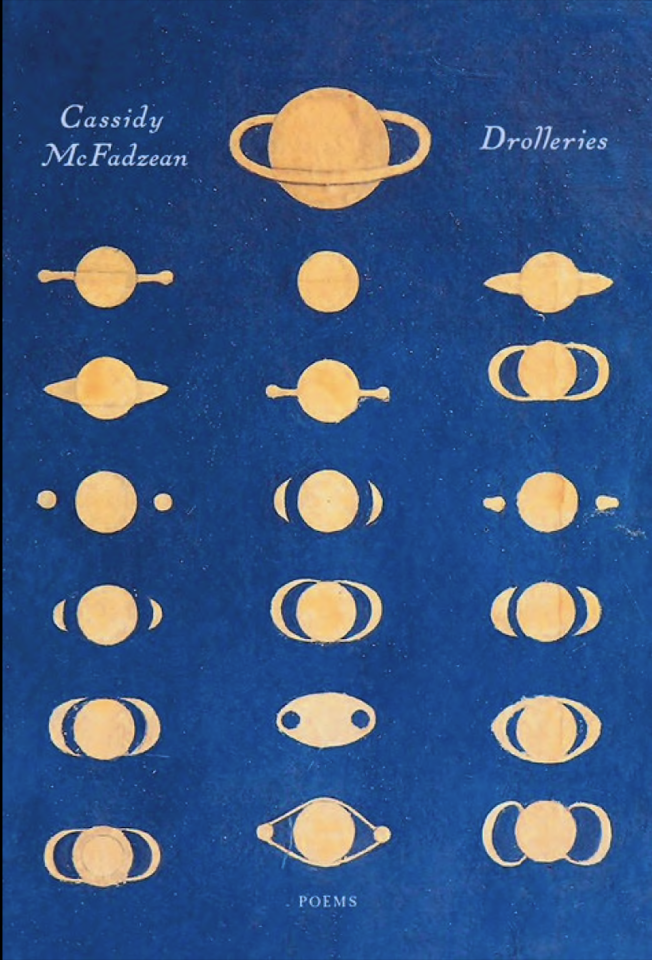 by Micheline Maylor
by Micheline Maylor
Drolleries
by Cassidy McFadzean
McClelland & Stewart (2019)
ISBN 978-0-77107-317-5
A poetry book should make a promise and an invitation on the opening page. Cassidy McFadzean’s, Drolleries, makes such a promise with an invitation to magick and visceral description. “Forest pine needles formed a false floor / that broke away below me, earth / loosening around the roots / of a rotting log’s hollow chambers.” Rarely does a poetry book do such a job with both world building and specifics. Everyday items such as shower curtains become the theatre for natural reclamation of the body and mythology of the mind. We see this early career poet coming into her own skill set as metaphor maker.
While much of the recent magic fad comes across as twee, McFadzean’s plays with stakes and gruesome witchcraft. A fixation on body provides squeamish satisfaction in poems such as “The Necropants” and “Mood,” poems where the mystical occult becomes firmly rooted in the physical. “The Necropants” follows “Saga” a poem about animal skinning, then describes how wearing these (real) pants of human skin can bring either eternal riches or lice. McFadzean spares the reader no shyness throughout: “Witchhazel in my pussy. / Rose water on the brain. / Let’s not go down memory lane, / but memory locker, feeling stored away.”
Ever-present and repeating images of rings, body feelings, sex, power, marriage, and divorce, in multiple contexts, remind and thread the reader to a longer and wider narrative than any one poem can provide. In “Kunstkamera” these lines sum up the theme of the book: “It is the artistry / of the still lifes that draws us in.”
This book is a must have for its breadth of skill, including sestinas and lyrical brevity. The most disappointing part was not in the book itself, but on the write up provided by M&S, stating the book was about the “violence of the patriarchy.” I’m tired of this phrase, and I protest its myopic focus.
In fact, this book is about the power of a woman in the heat of her physical and mystical prowess. It is rife with clear, dark, and specific imagery and full of emotional charge, all while maintaining poetic complexity. McFadzean reads as the smart girl in class who makes even teachers believe in the black magic of the occult and who sends them home to have unsettled dreams of her sexuality and power.
Micheline Maylor is the co-founder of the FreeFall Literary Society of Calgary and the editor-in-chief of FreeFall Magazine. This review was originally published in Quill and Quire.

